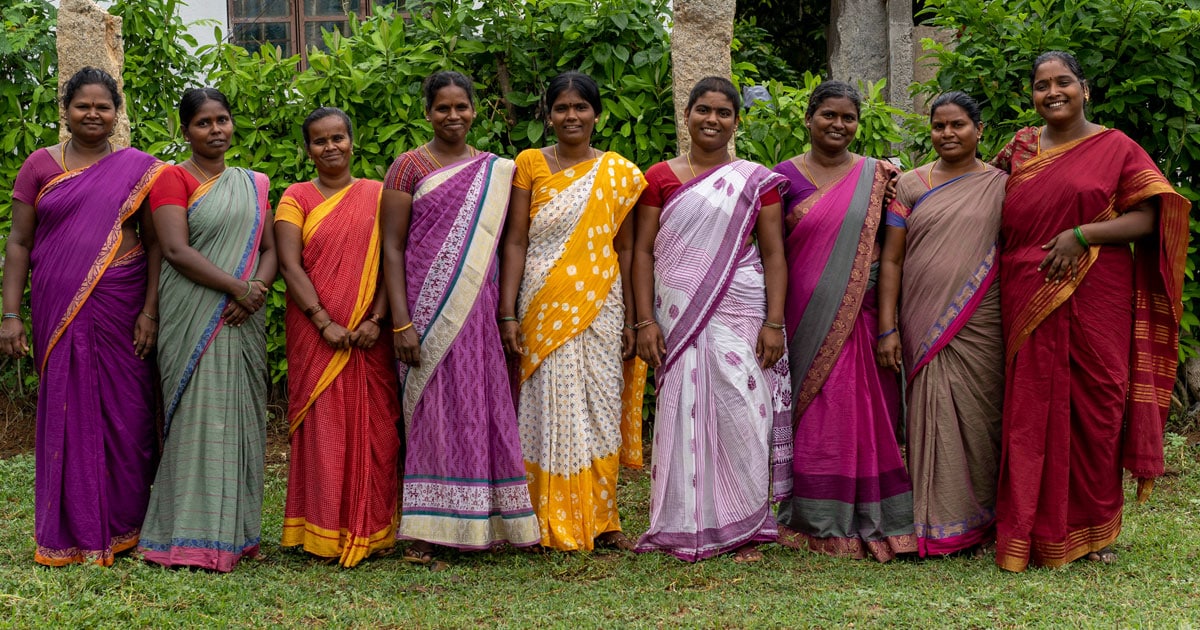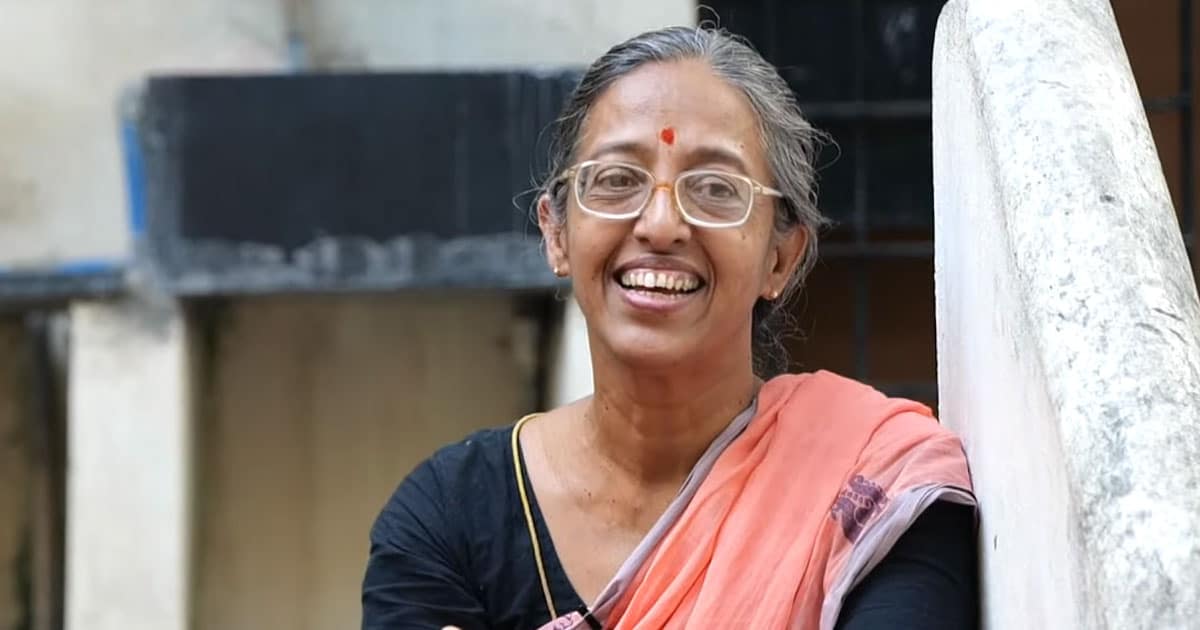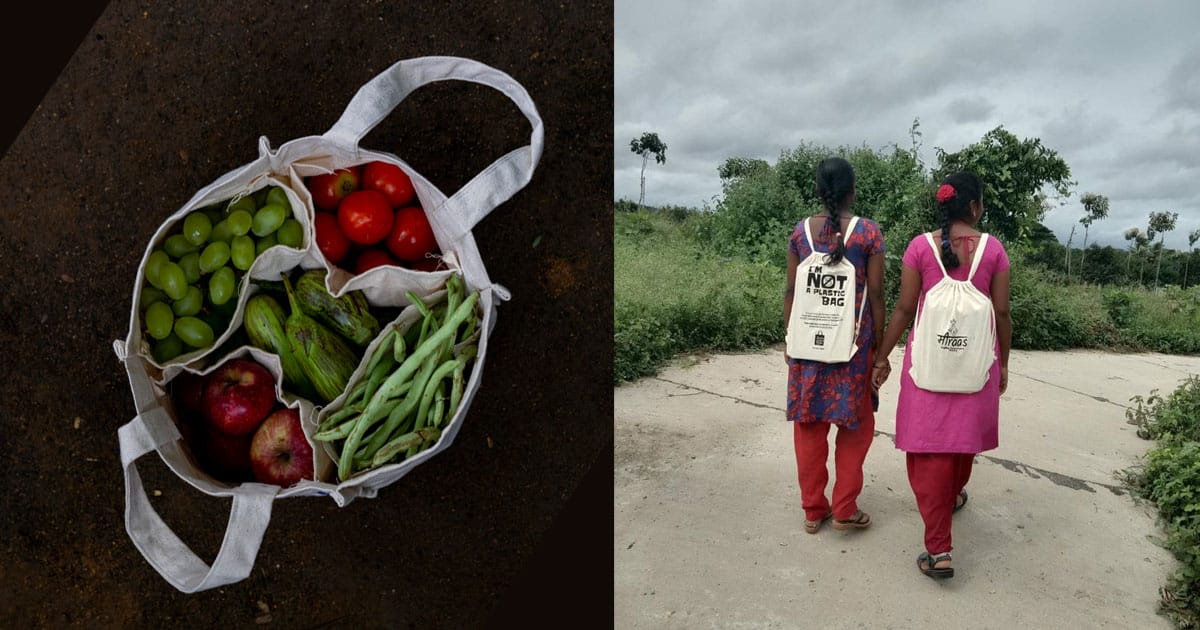A few years back, when one would search Paalaguttapalle, it was almost impossible to locate it on the Google Map. Fast-forward to 2022, the moment Paalaguttapalle hits the Google search, it leads to endless web pages flashing Paalaguttapalle Bags. How did it all transpire? To comprehend it, nothing is more befitting than the quote by Eleanor Roosevelt -“A woman is like a tea bag – you can’t tell how strong she is until you put her in hot water.” The clue lies in the mention of woman and bag!
Paalaguttapalle is a story of not just one such woman. It is a saga of a bunch of naïve rural women who journeyed to change the narratives of their remote hamlet in Chittoor, Andhra Pradesh.

Paalaguttapalle (Dalitwada) is a remote village of landless agricultural laborers. Over the years, the slowly depleting groundwater level has become a key concern. Moreover, a drastic drop in rainfall in the past decade slowed agriculture alarmingly. A back-to-back drought spell further hit it. The government policies made cultivation utterly unremunerative employment, adding to the villagers’ agony. Many of them were forced to migrate to bigger cities for their survival.
But a few women like G. Annapurna was determined not to give up. Her only skill was basic tailoring knowledge.
One dot connects to the other and makes a graph of growth. In this scenario, the catalyst was Aparna Krishnan, a software engineer who moved from Chennai to live and work here and eventually became a part of this humble community.

One day Aparna received a call from a Hyderabad-based friend asking if someone could supply 100 cotton bags. It rang a bell, and she approached Annapurna, and the answer was yes. The latter gathered three more women, N. Rani, K. Lakshmikantha, and N. Anita, and they churned out 100 bags in no time.
“For us delivering quality within the stipulated deadline was our priority,” says Annapurna.
Their bags earned rave reviews. The order from Organic World Congress for nearly 1500 bags worked as a turning point. Slowly they formed a group and took charge of every responsibility to run their small business. From procuring the fabric, storing it in their house, manufacturing, and quality check to shipping, they handled everything by themselves.
“We don’t have a dedicated or formal workspace. Neither there is support from any NGO or government. Our homes serve as storage for fabric. Each of us has a tailoring machine, and we stitch the products at our homes,” shares N.Rani.
Upon getting an order, when it requires combined work, i.e., cutting the cloth, screen printing, quality checking, and packaging, they use the 10ft/10ft room of Aparna’s house as their workspace. Purely as word-of-mouth publicity, their products reached far-flung places. Soon their line of bags got famed as ‘Paalaguttapalle Bag’. They started getting a more significant number of orders. The core team increased by adding a few more women, P. Nirmala, P. Ramila, Jyothi, Roopa, and Uma.
Also, read: This Himachali Woman Offers Sustainable Products Obtained Directly From The Mountains
But how do they define roles?
“It is a fairly egalitarian group. When we receive an order, we distribute the responsibilities equally among ourselves,” explains Lakshmikantha.
Now their customizable bags range includes grocery, totes, tiffin carriage bags, conference bags with logos, gift pouches, and so on. From a modest beginning with 100 bags, they have crafted about five lakhs bags within six years.

These women seamlessly adapt to the situation and adopt innovative skills to stay abreast. A few years back, one order demanded the application of screen printing. Learning it was an expensive affair. Finally, they came across a place in Chennai that could train them. Despite not knowing the local language, i.e., Tamil, they went ahead and got trained. Now they are experts in screen printing.
Also, read: This Young Entrepreneur Upcycles Scrap Tyres To Make Sustainable And Fashionable Footwear
The Covid-19 pandemic hit their business adversely. But the Paalaguttapalle Bags manufacturing unit has evolved into an ecosystem where customers become personal friends and offer help and guidance. These women survived the brunt by making fabric face masks. Their USPs are attention to detail, commitment to customer satisfaction, and uncompromised quality.
“Our vegetable compartment bag is a huge hit. It is a sturdy canvas bag with internal vertical multiple compartments. It helps to keep the vegetables organized while shopping. It originated from a customer’s order. Soon, it went viral over the internet, and we were swarmed with orders,” recollect the group.
The evolution of Paalaguttapalle Bags is an apt definition of organic growth. What initiated as a desperate attempt to earn and feed the family has created a larger selfless community.
To motivate these brave women, Aparna has been helping by managing their increasingly popular social media handles. Lavanya supports by managing the website. Rama from Chennai has trained them in blouse stitching and designing. Vignesh helped extensively to make them learn screen printing. Recently, they got trained in quilt stitching and customization. Arun Kombai, an accomplished designer has been a constant support. These enterprising women take up any assignment wholeheartedly without hesitating to learn a new skill.
What impresses any urbanite like me is their attitude towards money. When asked do they seek financial support? The answer:
“We aren’t looking for funds, especially loans. For us, loans are a burden. On the contrary, we seek support in the form of substantial volume of orders.”
Their bags filled with optimism, virtue, and stories of inspiration are not limited to the state and national boundaries. Their consignments have gone to the US, UK, Hongkong, Dubai, Australia, Canada, Singapore, and Malaysia. The assortment of merchandise is also diversifying. Soon, there will be wooden artifacts.
Where do they see themselves five years down the line?
“We don’t plan our future as ‘time-based’ agenda. We want our orders to increase. It will help us support our families better, educate our children and create a community where more women can join and earn a livelihood.“
Do they wish to shift base and move to a bigger city?
“Our village is self-sufficient, and it has given us shelter, food and livelihood. We would never trade it for any other place.”
How you can help Paalaguttapalle bags
Here is a chance to begin our journey as green champs. Consider opting for handmade and eco-friendly Paalaguttapalle Bags and order via WhatsApp (9381598081) and Instagram. Do your bit to support livelihoods for many families from this hamlet, and encourage women empowerment.

